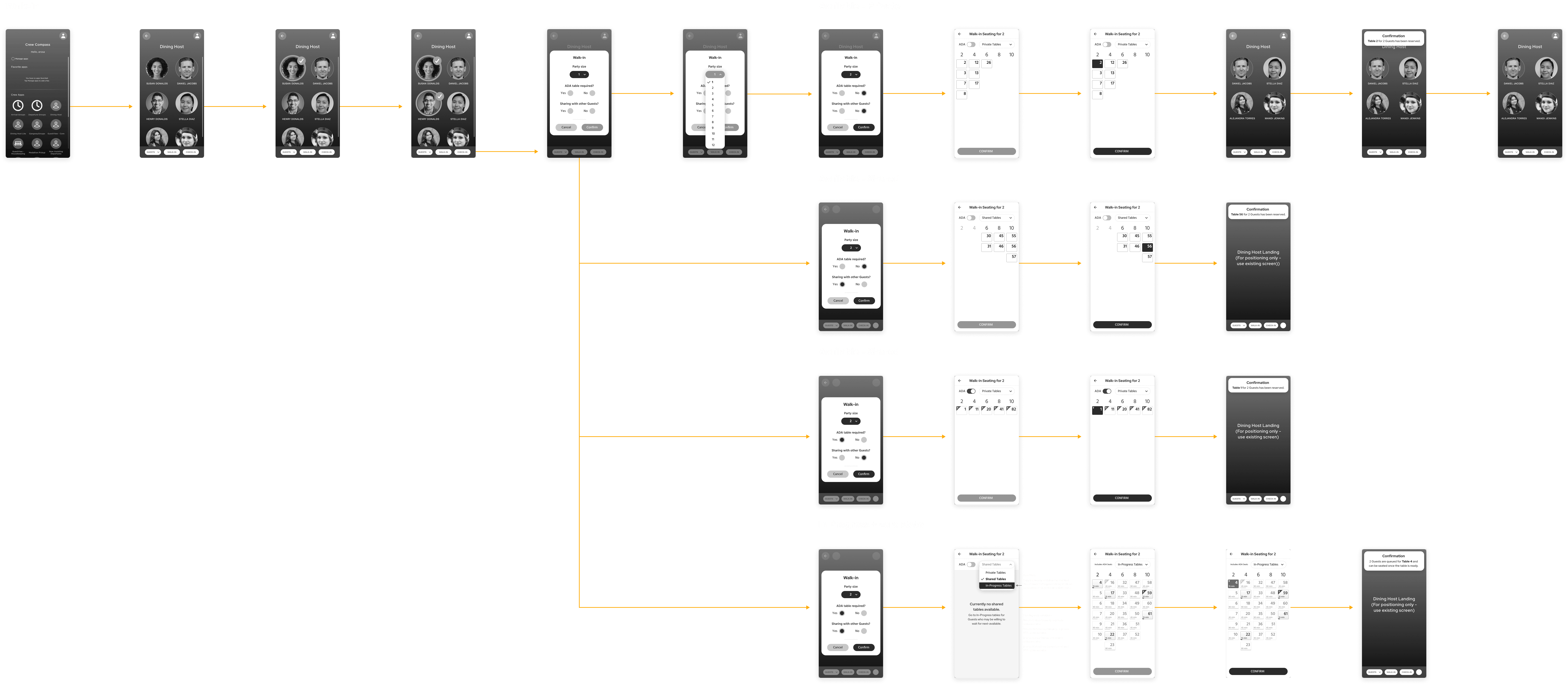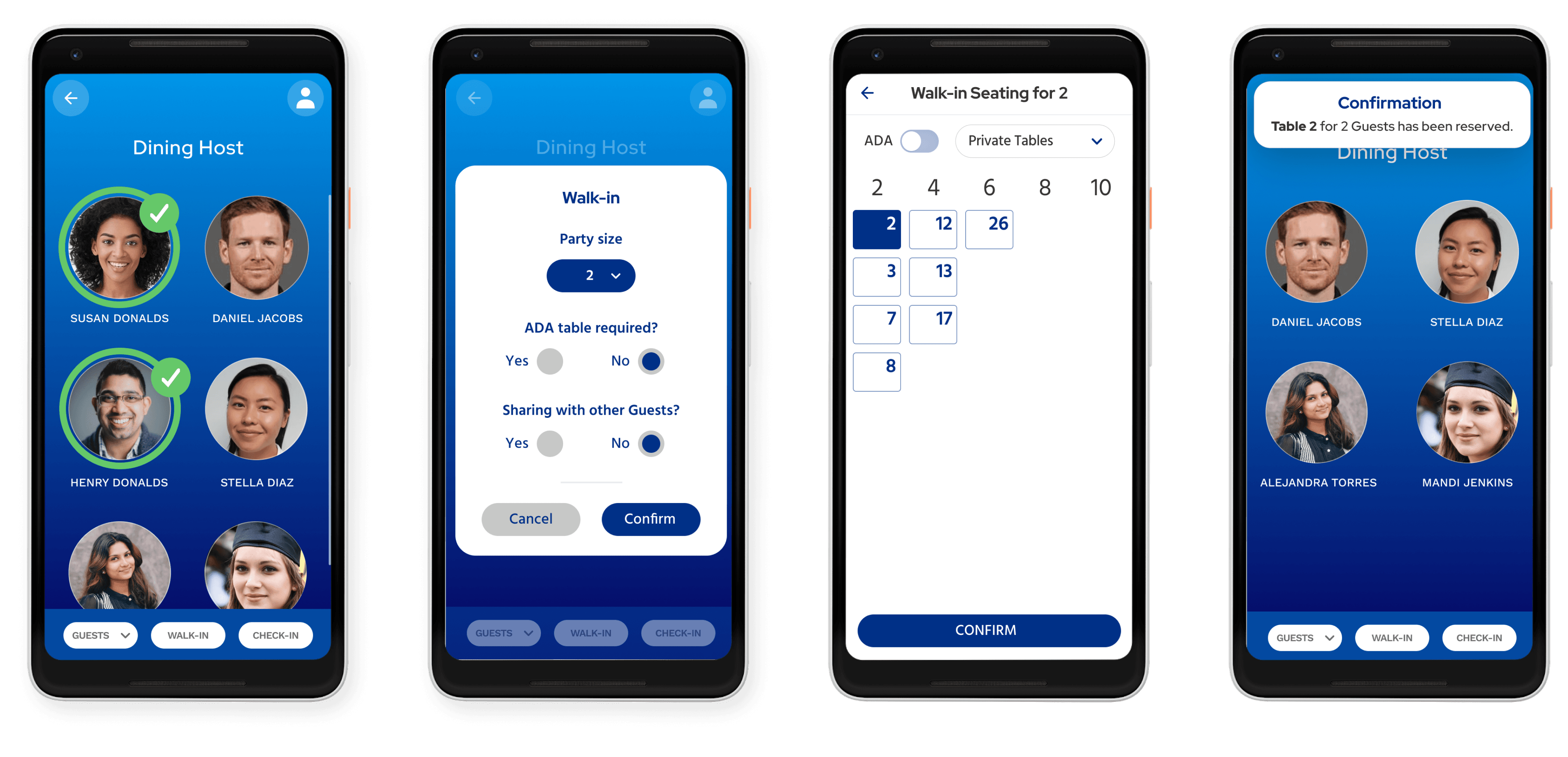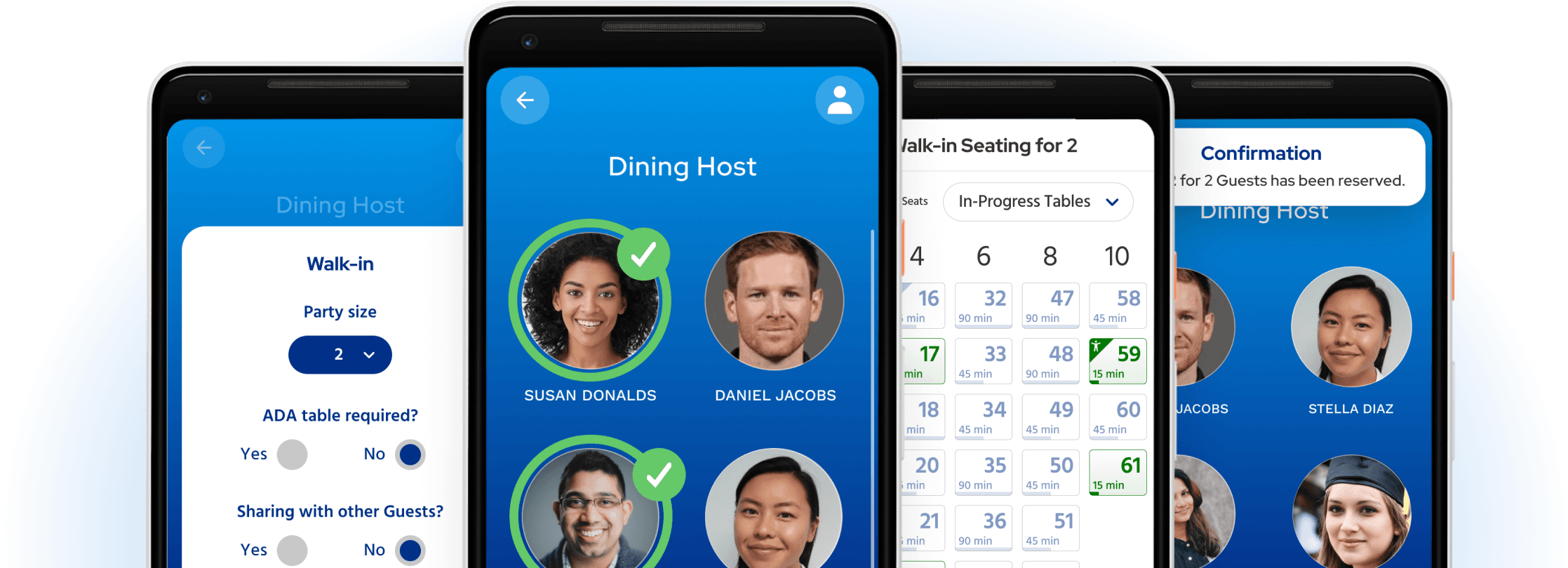My Role
As the senior product designer, I owned the end-to-end design process for an MVP dining venue seating application. Through foundational research with onboard dining hosts, I uncovered key pain points and challenges, which informed the design of a user-centric solution.
Problem Statement
Dining hosts at the restaurant's entrance lacked an efficient system for determining seat availability, relying on paper and pencil.
When walk-in guests arrived, the host had to physically check each table's availability, leading to increased wait times. As the sole person responsible for checking in all guests, the host's repeated trips to confirm available tables unnecessarily prolonged the seating process.
Goals
Improve the dining experience for guests by minimizing seating wait times
Eliminate the need for dining hosts to physically confirm table availability, enabling them to focus on efficiently checking in guests
Create an MVP solution that can scale with additional features in the future
Actionable steps derived from research:
Develop an on-device app for crew that provides a view of table availability
Ensure the app confirms guest check-ins and updates seat availability instantly
By creating an automated system accessible via app, dining hosts can efficiently check in guests and manage seating arrangements, ultimately reducing wait times and enhancing the overall dining experience.
Approach
Principles, strategies, and techniques
Effective collaboration: I worked closely with venue crew members, leadership and developers throughout the project
Design approach:
Collaborated with crew and product management to determine requirements
Conducted a competitive analysis of similar apps used by restaurants
Employed user-centered design thinking throughout the project
Validated designs regularly to ensure alignment and identify edge cases
Aligned designs with the existing crew app design language
Created high-fidelity prototypes for crew testing and stakeholder validation
Developed comprehensive documentation for developers
Dining Host App - Guest Walk-in Flow

Outcome and Conclusion
Metrics and insights gained
Once launched, the app resulted in substantial increases in dining host efficiency and major reductions in average wait times from 10 minutes to 2-3 minutes for walk-in guests and lesser wait times for guests arriving with reservations.

Conclusion
This project highlighted the importance of identifying and addressing issues that negatively affect the user experience. The research revealed the absence of an efficient system for dining hosts, which complicated their work and impacted guest satisfaction.
By thoroughly understanding the problem and breaking it down into actionable steps, I successfully created a solution that enhanced the quality of life for hosts and improved the service provided to guests.

